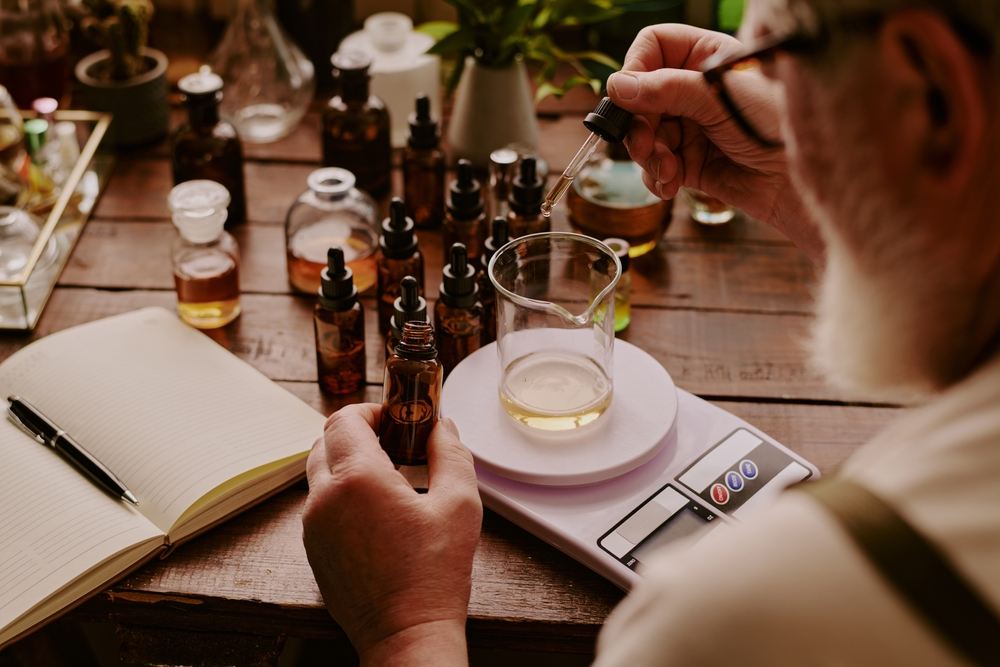The Art and Science of Perfumery: A Deep Dive into the Beauty of Scent
With the earliest documented perfumery dating back to the ancient civilizations of Mesopotamia and Egypt, the art of crafting fragrances has been intertwined with human history for thousands of years. These early perfumers, often priests and healers, used natural materials like spices, flowers, and resins in their scent compositions, considering their work a sacred craft. Today, the field of perfumery is a complex blend of art and science, drawing upon chemistry, botany, and the psychology of scent to create fragrances that can evoke emotions, memories, and even alter mood.

The Historical Roots of Perfumery
It was the ancient Egyptians who first pioneered the use of perfumes for religious rituals and personal adornment. Their mastery of the distillation process allowed them to extract the pure essence of flowers and other aromatic materials, creating scented oils that were often used in burial rituals. The Greeks and Romans later expanded the use of perfumes to include personal hygiene and beautification, and the art of perfumery gradually spread throughout the world.
The Middle Ages saw the introduction of alcohol-based perfumes, which had a longer shelf life and could be more easily applied to the skin. This development was a major turning point in the history of perfumery, leading to the creation of the first modern perfume in the late 16th century by the Italian physician and chemist, Giovanni Paolo Feminis.
The Modernization of Perfumery
The 19th century marked the beginning of the modern era of perfumery, with the introduction of synthetic materials. These new ingredients expanded the perfumer’s palette immensely, allowing for the creation of fragrances that had never been smelled before. The iconic perfume Chanel No. 5, created in 1921, is a perfect example of the innovative use of synthetic ingredients, with its unprecedented bouquet of aldehydes.
The 20th century saw the rise of celebrity and designer fragrances, making perfume an accessible luxury for the masses. Today, the perfume industry is a global behemoth, valued at over $31 billion in 2018, and expected to reach $40 billion by 2025.
The Impact and Reception of Perfumery
Perfumery has always been more than just a means of smelling pleasant. From its earliest roots, perfume has been used to create a personal identity, to evoke specific emotions, and even to manipulate the perceptions of others. The psychological impact of scent is profound, and modern perfumers are increasingly turning to the science of olfaction to understand how different aromas can affect mood, cognition, and behavior.
The reception of perfumery has also evolved over time. While once considered a luxury reserved for the elite, perfume is now seen as a personal necessity. This democratization of fragrance has led to a proliferation of brands and styles, catering to a wide range of olfactory preferences.
Unique Insights into the World of Perfumery
One of the most fascinating aspects of perfumery is the sheer variety of scents that can be created. The perfumer’s palette includes not only floral, citrus, and spicy notes, but also more esoteric materials like oud, vetiver, and ambergris. The ability to blend these disparate elements into a harmonious whole is the true art of the perfumer.
Another intriguing aspect of perfumery is the role of cultural influences. Different societies have different scent preferences, shaped by climate, diet, and local flora. For example, Middle Eastern perfumery often features heavy, resinous scents, while Japanese perfumery favors lighter, more delicate compositions.
A Balance Between Depth and Accessibility
While the world of perfumery can seem overwhelmingly complex, it’s also surprisingly accessible. Anyone with a keen nose and an interest in scent can learn to appreciate the subtleties of fragrance. The key is to approach perfume with an open mind, and to understand that, like any art form, it’s a matter of personal taste.
In conclusion, the beauty of perfumery lies in its complexity and diversity. It’s an art form that draws upon a wide range of disciplines, from chemistry to sociology, and its history is deeply intertwined with the story of human civilization. Whether you’re a seasoned fragrance aficionado or a curious novice, the world of perfume offers a wealth of sensory experiences waiting to be discovered.




